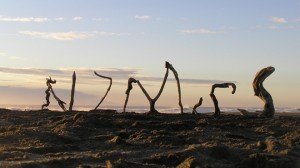The New Zealand Marine Science Society’s annual conference is this year being held far south in Oban, Stewart Island, but hasn’t been missed by some reporters.
 The theme of this year’s conference is “Understanding, Managing, and Conserving our Marine Environment” and will see presentations from both local and international speakers.
The theme of this year’s conference is “Understanding, Managing, and Conserving our Marine Environment” and will see presentations from both local and international speakers.
Several outlets have already covered Stewart Island shark tagging research from NIWA, DoC and the University of Auckland researchers, presented today at the conference:
Campbell Live: The mysterious world of the great white
New Zealand Herald: Record number of great white sharks tagged off NZ
Stuff.co.nz: Sharks re-trace journeys after tropical holidays – Niwa
NewsTalk ZB: Great whites tagged + Photos
TV3 News: Great white sharks tagged in record numbers
The Southland Times has also noted the the conference and its local impact in a series of articles:
Uni to set up Stewart Island laboratory
Science can ‘curb our ocean abuses’
An excerpt:
Science can ‘curb our ocean abuses’
A top New Zealand marine scientist is concerned about the detrimental effect human activities are having on the environment and the scant resources used to combat it.
Otago University marine science head of department Professor Gary Wilson yesterday said more resources needed to be applied to research into the marine environment to protect the future of ecosystems.
New Zealand was a maritime nation with the fourth biggest marine estate in the world and relied heavily on it for everything from food to tourism, but there was limited funding put towards understanding the environment and the impact humans had on it, he said.
“It is frightening to think, considering the size of the marine realm and the influence it has on the terrestrial environment where we all live, how few people and what limited resources we have to understand it,” he said.
Some people were scared of what science could show but, by being able to build data and understand how one ecosystem relied on another, it could help increase productivity while also protecting the environment, he said.
“In some ways we are frightened to learn [what impacts we are having] … because of our reliance on the environment – but in reality science doesn’t prejudge the outcome, the outcome has the opportunity to be more helpful than not,” he said.